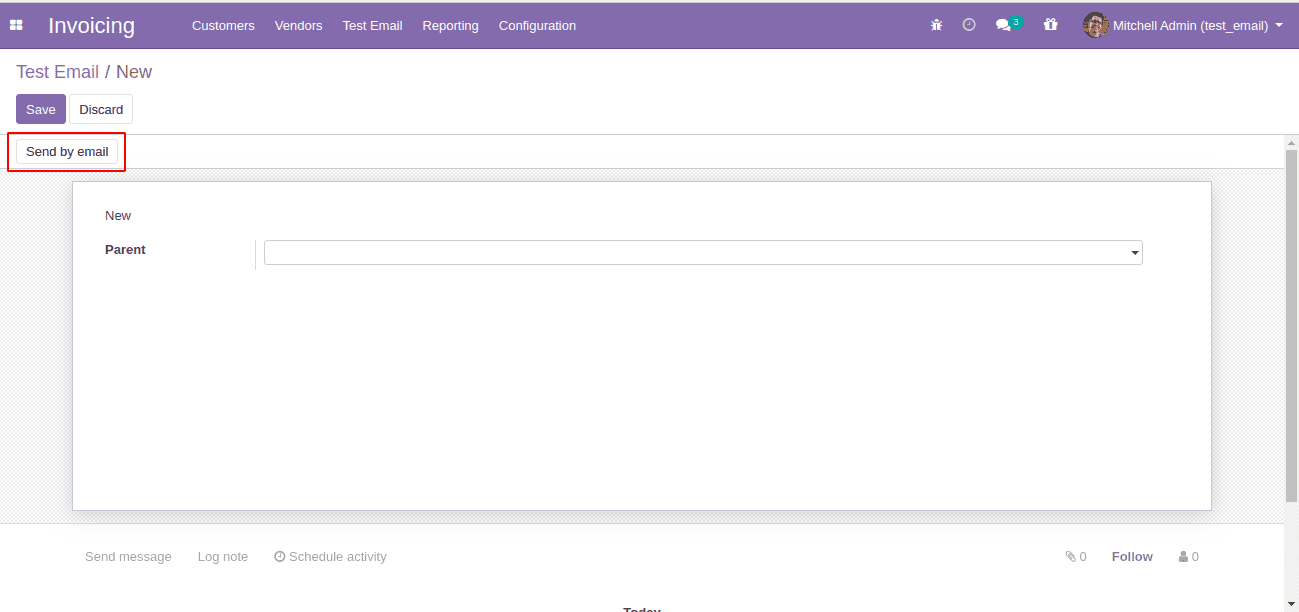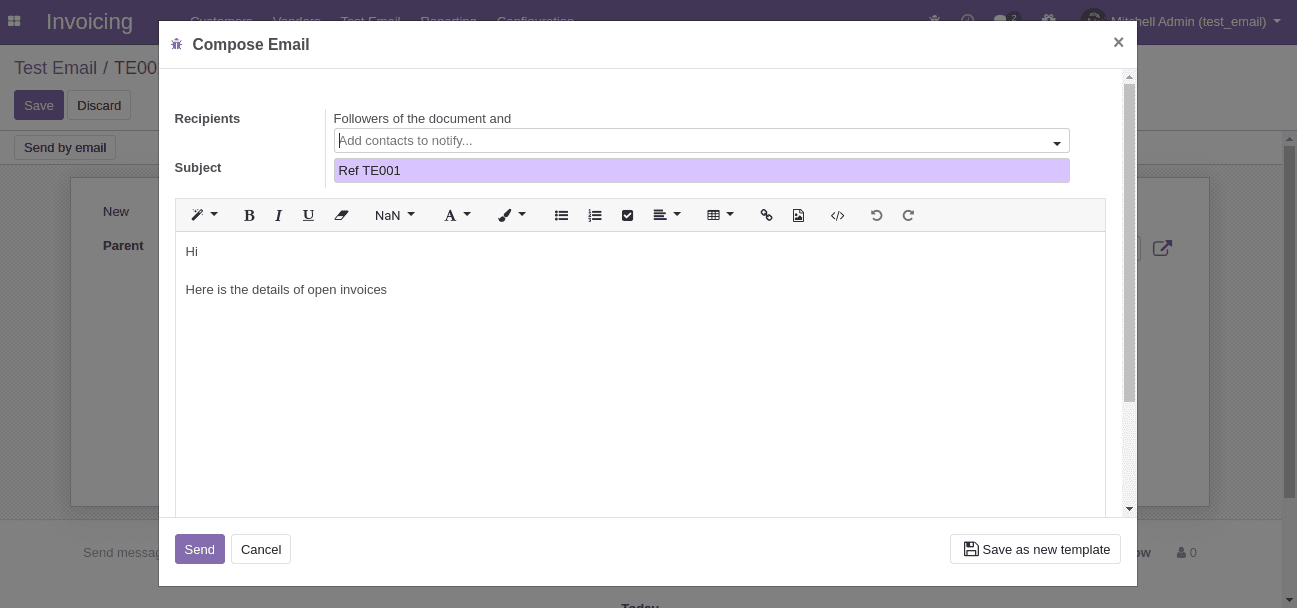Communication is very important for a business. Email is the fastest way to transfer information. Main advantages of email communication are:
- Cheap
- Fast
- Easy
- Convenient
- Easy to replicate
In this blog you will learn about:
Odoo gives an option to send email in the modules so that for most of the process, customers can track it even through email. So it is important to give an option to send emails while customizing a module. Here, I am going to explain how to send an email with the click of a button. I will also be explaining how to send an email from a wizard.
Let us discuss it with an example:
Create an Email Template to Send the Email in Odoo 13
Here, I created a model test, an email with the module name test_email. First, we have to create an email template to send the email:
<odoo>
<data noupdate="1">
<!--Email template -->
<record id="email_template" model="mail.template">
<field name="name">Email Template</field>
<field name="model_id" ref="test_email.model_test_email"/>
<field name="email_from">${(object.company_id.email |safe}</field>
<field name="email_to" >${object.partner_id.email}</field>
<field name="subject">Ref ${object.name or 'n/a' }</field>
<field name="auto_delete" eval="True"/>
<field name="lang">${object.partner_id.lang}</field>
<field name="body_html"><![CDATA[
<p>Hi</p>
<br/>
<p>Here is the details of open invoices</p>
<br/>
]]>
</field>
</record>
</data>
</odoo>
While creating the email template, one has to fill the field email_from. Since we send an email directly from the code, we have to fill the field email_to in the email template itself. Also, we can define the body for the email template as per the requirement.
To know more about email template, please refer the blog Creating Email Templates in Odoo
Next is to add the button ‘to send by email,’ for that let's check the XML code to add a button in the form view:
<?xml version="1.0" encoding="utf-8"?>
<odoo>
<data>
<record id="view_test_email_form" model="ir.ui.view">
<field name="name">test.email.form</field>
<field name="model">test.email</field>
<field name="arch" type="xml">
<form>
<header>
<button name="action_send_email" string="Send by email" type="object"/>
</header>
<sheet>
<field name="name" readonly="1"/>
<div>
<group>
<field name="partner_id"/>
</group>
</div>
</sheet>
<div class="oe_chatter">
<field name="message_follower_ids" widget="mail_followers"/>
<field name="activity_ids" widget="mail_activity"/>
<field name="message_ids" widget="mail_thread"/>
</div>
</form>
</field>
</record>
</data>
</odoo>

Here, we added a button with the name “action_send_email” ie “Send by email” in the type object. Next is to define the method in the .py file
def action_send_email(self):
mail_template = self.env.ref('test_email.email_template')
mail_template.send_mail(self.id, force_send=True)
We can send an email by calling an existing method send_email(). We can pass the required data in the method. In the mail_template, we have an email template that is created above.
This is how we can send an email in a button click.
How to Send an Email Through the Wizard in Odoo 13
We have to create a button as we did above; the only difference is in the method. So let's get into the method, action_send_email
def action_send_email(self):
'''
This function opens a window to compose an email, with the emai template message loaded by default
'''
self.ensure_one()
ir_model_data = self.env['ir.model.data']
try:
template_id = \
ir_model_data.get_object_reference('test_email', 'email_template')[1]
except ValueError:
template_id = False
try:
compose_form_id = ir_model_data.get_object_reference('mail', 'email_compose_message_wizard_form')[1]
except ValueError:
compose_form_id = False
ctx = {
'default_model': 'test.email',
'default_res_id': self.ids[0],
'default_use_template': bool(template_id),
'default_template_id': template_id,
'default_composition_mode': 'comment',
}
return {
'name': _('Compose Email'),
'type': 'ir.actions.act_window',
'view_mode': 'form',
'res_model': 'mail.compose.message',
'views': [(compose_form_id, 'form')],
'view_id': compose_form_id,
'target': 'new',
'context': ctx,
}
In the above method, we can create an array with the model from which data has to pass to the email template, id of default email template, which is loaded default to the field default_template_id and default_use_template id as the bool (email template id). The need of an array “ctx” is to pass those values in the context. compose_form_id is the reference of the email wizard which can be used for all customized modules

In the email wizard, one can add the contacts to which email has to be sent and click on send.